Aug 14
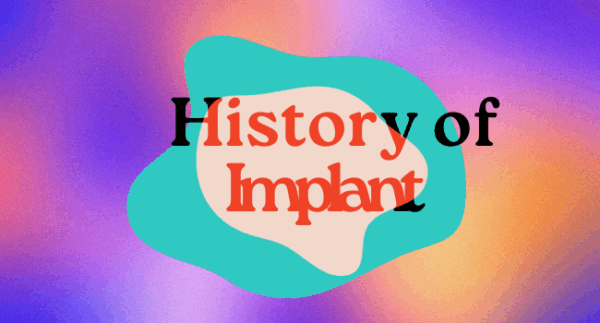
Help Us Protect Access to Sexual and Reproductive Health Care Today!
Newsletter/May 2016
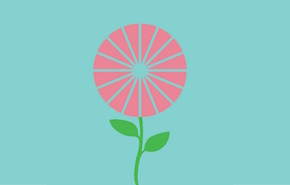
This year, you can celebrate a special mother in your life by sending them a beautiful RHAP Mother’s Day card. Today is the last day to order, so get yours now before it is too late! With a donation of $25 we will send a card or e-card to your loved one!
All donations will be matched dollar-for-dollar AND you can show your mother, grandmother, sister, aunt, or friend what a truly special person they are!
Show your love this Mother’s Day by making a donation today at reproductiveaccess.org/donate to ensure all mothers can access the full spectrum of care they deserve.
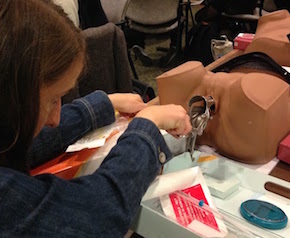
Despite compelling evidence about the safety and efficacy of the IUD and the contraceptive implant, there are many barriers to increasing access to long-acting reversible contraception (LARC). These barriers include commonly held myths about the methods, up-front costs of purchasing the methods, and a shortage of primary care providers competently trained to insert and remove LARC.
LARC insertion and removal skills are relatively simple procedures to learn, but, unfortunately, training options for community clinicians are nearly non-existent. Developing cost-effective, replicable models for training clinicians in LARC insertion and removal would address a critical barrier to LARC access.
In September 2014, in collaboration with a large community health center in New York City, the Reproductive Health Access Project launched a pilot project to train community clinicians to provide LARC. We had to work out a lot of logistical issues before we could launch training. One of the most complicated issues we had to address was ensuring medical liability coverage for the trainees – and we came up with a workable solution!
Our training program consists of a six-session training curriculum that contains didactic, simulation, and hands-on teaching. We evaluate our trainees every step of the way. We also give them the tools to assess readiness for providing LARC in their practice and a start-up resource guide to help them set up the systems they’ll need to offer this care to their patients.
As of March 2016 we have trained 25 community-based clinicians in LARC insertion and removal. Our evaluation findings so far indicate that almost half (45.5%) of the trainees had no prior experience inserting IUDs, more than half (61.5%) had no prior experience inserting contraceptive implants, and most trainees (63.6%) had little to no experience performing speculum (or reproductive health) exams. So far, 95% of the trainees successfully completed the training program and are ready to provide LARC to their patients.
Our pilot demonstrates that intensive, short-term clinical training can provide community clinicians, even those with very limited reproductive health care experience, the skills to safely and effectively provide IUD and contraceptive implants.
Next steps? Replicating our model!
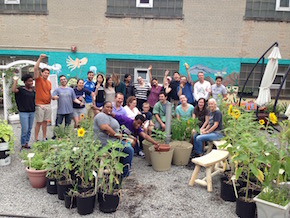
The Bridgespan Group is a nonprofit advisor and resource for mission-driven organizations and philanthropists. The organization hosts an annual charity auction in their offices to raise money for nonprofit organizations in their communities. Each year, members of the Bridgespan team can submit a nonprofit of their choice to be voted on as the event’s beneficiary. This year, the New York office chose the Reproductive Health Access Project as their fundraising beneficiary! More than 30 people attended the event and they raised over $5,000 dollars in one night. We caught up with RHAP supporter Alex Neuhoff, a partner at Bridgespan, to find out why they voted to donate this year’s proceeds to the Reproductive Health Access project (RHAP).
Alex said, “I chose to submit the Reproductive Health Access Project because I know $5,000 would go a long way for the organization – RHAP is really able to do a lot on a shoestring budget. We have a lot of people here who are passionate about RHAP’s mission and would like to see an increase in access to reproductive health care services.”
We are so grateful to Alex and The Bridgespan Group for choosing to support the Reproductive Health Access Project and we encourage you to learn more about their organization.
The Bridgespan Group collaborates with social sector leaders to help scale impact, build leadership, advance philanthropic effectiveness, and accelerate learning. They work on issues related to society’s most important challenges and breaking cycles of intergenerational poverty. Their services include strategy consulting, leadership development, philanthropy advising, and developing and sharing practical insights.
Visit their website at bridgespan.org to find out more!
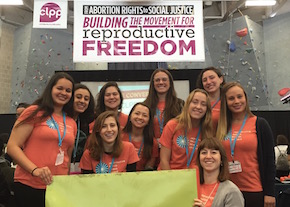
The weekend of April 8th the Reproductive Health Access Project (RHAP) attended and presented at the 35th annual Civil Liberties and Public Policy Conference (CLPP) hosted by Hampshire College. CLPP works to advance reproductive rights, engaging young people in activism through their student led conference, summer internship program, and leadership building projects.
This year, RHAP was invited to lead two presentations, Demystifying MVA Abortions: The Papaya Workshop and The Abortion Provider Training Challenge: The State of Abortion Training Today. As presenters at this conference, RHAP was able to reach a well-rounded audience of different age groups and levels of involvement in the movement.
The Papaya Workshop drew a young crowd excited to learn about and break down the myths and stigma around manual vacuum aspiration (MVA) abortion procedures. Using papayas as uterine models, they performed their own MVA “abortions”. In addition to physically practicing the procedure, participants also learned the importance of patient-centered language. Now, with a more comprehensive understanding of the procedure, our participants are better equipped to myth-bust and educate their communities about manual vacuum aspiration abortions!
The Abortion Provider Training Challenge Workshop drew a crowd of primary care clinicians eager to learn about the state of abortion training in the United States. Only 6% of family medicine residency programs and half of OB/GYN residency programs provide comprehensive training in abortion care—this has resulted in declining number of abortion providers nationwide. The RHAP team facilitated a great discussion about the current training environment and strategies for change used around the country, especially as related to engaging advanced practice clinicians as abortion providers.
In addition to presenting at CLPP, RHAP staff and interns attended a variety of workshops including Abortion Access In Latin America, A Pocketbook Issue: Abortion Access is Economic Justice, and Expanding Healthcare Access for Trans People, and Abortion Access: Threats and Resistance Strategies. These trainings were both enriching and empowering, and created a space to think and talk about a diverse range topics within in our movement.
Spending the weekend with so many of our allies was so invigorating. We returned to New York City fired up and ready to continue our role in building this movement through our work of expanding access to reproductive health care services. We are so thankful to the CLPP team for organizing this amazing event—we are already looking forward to next year!
To learn more about CLPP, visit their website at clpp.hampshire.edu
Subscribe to receive monthly updates from the Reproductive Health Access Project.
Your gift allows us to train and support health care providers across the United States so they can offer patients compassionate and comprehensive care.
Aug 14
